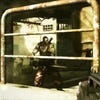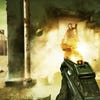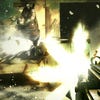Bodycount: “We wanted to do something different”
Codemasters’ shooter prepares to emerge from cover.
I wouldn't say it was hanging over us exactly. We've got a good chunk of the Black team working on this with us. Obviously, it would do a disservice to people still working at Criterion, who made Black, to say that we've got the whole Black team. We don't. But we've got a large number of people including some of the senior creatives on it, so the influences are there. When Stuart Black and I sat down and asked ourselves what we were going to make, it seemed that the perfect thing to do would be to do a shooter. If we were going to do that, it would be nice to do a proper shreddable shooter as nobody has done that for years. It was born of that, and it was born of the fact that we knew we had a lot of expertise in the studio to do that.
So there is a legacy there, there is an idea that this is a spiritual successor. But we don't have Black memorabilia around in the office, and we don't look at it and go, "Right, so for the sequel we'll need..." If you look at Bodycount and you look at Black, until you play them and see the shredding and everything, you wouldn't know they're from the same gene pool.
You look at FPS games at the moment, and for the last couple of years, it's been a bit of an arms race. It's about who can outspend who, and who can deliver the most bombastic, over the top experience. Then this year, you've seen things like Bulletstorm and Brink, and you're starting to see people push in a different direction and you're starting to see a lot of innovations. [Laughs] I don't think it's the death throes of it, with this crazy burst of inventiveness...
Right! I don't know if that's it, but this is an important year for FPS games. We're going to see how much room there is around COD and Battlefield.
The core thing about the skill kills is that they aren't at the centre of things. It's all about the combat chain: doing one skill kill after another and keeping that multiplier growing and growing and growing. That's how we grade you, and that's how we rate you at the end of the missions. The reason we do that, pure and simple, is to drive replay within the single-player campaign. Bodycount's levels are very open, the AI is very dynamic, and you can actually have a completely different experience by attacking levels from different directions. Skill kills are a way of saying that there's more to the campaign than playing it once and then living in multiplayer.
It's funny how the game itself can surprise you. With the speed thing, I'd just gone to play the co-op mode for the first time. It was early, and it was quite broken – and one of the things interesting about how it was broken was that one of the players was running at double speed. I was looking at it on the other person's screen, and it looked quite funny, but it also gave me a really interesting advantage in terms of running around and mopping up all these waves that were attacking. It worked perfectly within the context of our upgrades. We realised if we could time-limit it, it worked brilliantly, and we could swap it in for one of the other upgrades we weren't actually that happy with.
It was something that stayed in. It was a radar-related upgrade, and we realised that we were asking the player to pay for something with Intel that other games would normally give you for free. We decided people should have it permanently from the start.
Basically, you get a guy in who's done it before on a lot of high-profile titles, has shot a lot of real-world weapons, and is also a crazy, on-the-edge borderline sort of Welshman. Then you sit him in a room for two years, and have him endlessly iterate until it feels right. It's about time, ultimately. A lot of teams will make a shooter, a game about guns, and then won't put the time into endlessly finessing everything about that.







